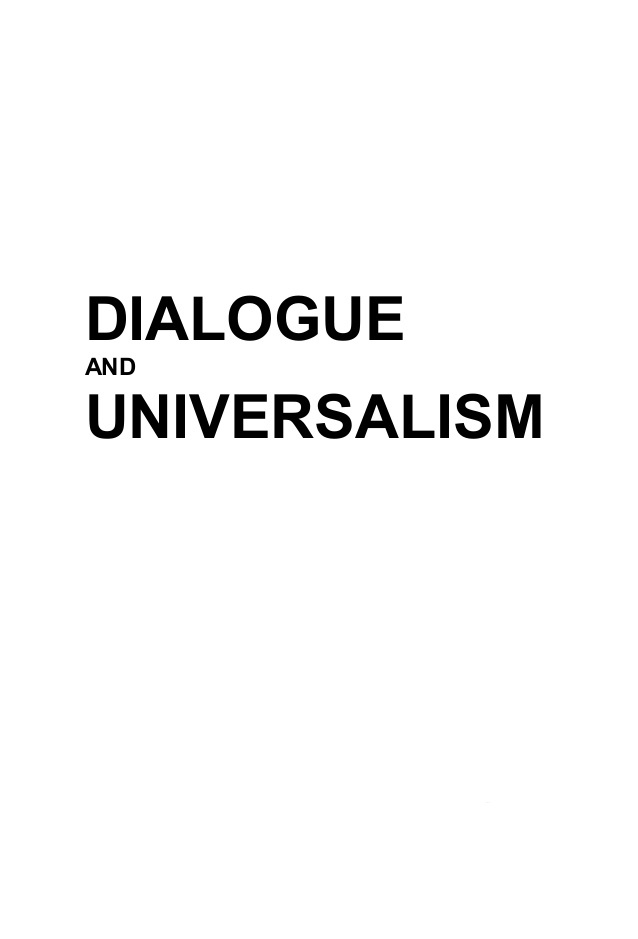A MEDITATION ON UNIVERSAL DIALOGUE
A MEDITATION ON UNIVERSAL DIALOGUE
Author(s): Kevin M. BrienSubject(s): Philosophy
Published by: Instytut Filozofii i Socjologii Polskiej Akademii Nauk
Keywords: abstract universal; alienation; Aristotle; capitalism; categorical imperative; concrete universal; cultural evolution; external relation; forces of production; Hegel; internal relation; Kant; Marx; politics of the global village; praxis; social relation
Summary/Abstract: This meditation is a series of reflections about some milestones along my philosophical journey that concern universals, universal definitions, claims to universal moral principles, and universal dialogue. It begins with a focus on the Socratic search for universal definitions of general terms; and it continues with a look at the way my discovery of non-Euclidean geometries began to challenge my attitude toward the possibility of universal definitions of all general terms. Along the way I bring out how Wittgenstein’s notion of “family resemblances” added to this challenge. The meditation continues with reflections on Kant’s attempts to make a case for a universal and unconditional moral imperative. Following this I sketch a counter-case that the concrete human being gets lost in a haze of Kantian abstraction. These reflections bring out the clear conceptual linkage between the “abstract universal” and the “external relation” as canons of interpretation. The meditation then makes a shift to some later milestones on my journey, beginning with reflection on the “concrete universal” and the “internal relation” as alternative canons of interpretation. I try to illustrate how Marx critically appropriated Hegel’s view of these canons via discussion of Marx’s notion of “praxis;” and then go on to adopt these canons of interpretation throughout the rest of the meditation. Employing these canons of interpretation, and with Aristotle’s very broad understanding of the term “politics” in mind, I construe universal dialogue to be a mode of discourse oriented toward the development of a new “politics of the global village” that could cultivate the practice of concretely relating to the other person as a person. Inasmuch as Aristotle construed “politics” as involving a developed ethics as well as a “science of society” (in addition to what westerners currently mean by the term), the meditation proceeds with a preliminary sketch of these two dimensions of a new “politics of the global village.” My meditation goes on to suggest a fundamental ethical principle (contrasting it with Kant’s moral imperative) that could be concretely and universally adopted by all people, and that could guide universal dialogue. The meditation continues with a sketch of a philosophical reconstruction of a humanistic Marxist “science of society,” and integrates the fundamental ethical principle with it. This sketch is basically a philosophical clarification of Marx’s theory of cultural evolution that brings into play the key role of the concrete universal and the internal relation as fundamental canons of interpretation. The meditation concludes with an argument that universal dialogue on the part of a very wide spectrum of ordinary people, as well as specialists, is the sine qua non for any hope of transforming the secular basis of human societies in the direction of social justice, as all of humanity faces the daunting crises that loom throughout plane
Journal: Dialogue and Universalism
- Issue Year: 2013
- Issue No: 3
- Page Range: 35-62
- Page Count: 28
- Language: English
- Content File-PDF

